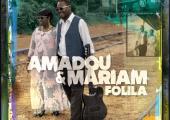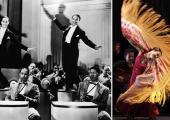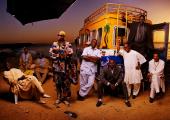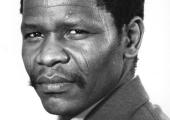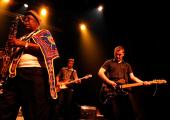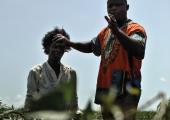theartsdesk at the Busara Festival: Africa's long song of defiance

Zanzibar's annual music festival offers an uplifting platform to Africa's disaffected voices
The 18th-century Omani fort in Zanzibar is silhouetted against a clear African night. Nneka, a bird-like Nigerian female artist in shabby leggings, is hammering out “Vagabonds in Power” on an open-air stage inside the fort, just metres from a sea of entranced faces. The song is a poke at Africa’s leaders, specifically their part in the Niger Delta mismanagement and related death and corruption scandals. With a voice reminiscent of Nina Simone, and the emotional clout of Billie Holiday, Nneka delights the predominantly African crowd attending the Busara festival.

